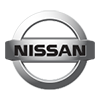As Microsoft's "preferred provider of worldwide upgrade services for customers", GAP offers proven end-to-end consulting services to help you accomplish your Powerbuilder to Java goals. By outsourcing the entire task to us, we can help you save time and money while minimizing project risk.
Using our highly extensible and customizable Java to .NET migration tool, the JLCA Companion, a large part of the conversion process can be automated, dramatically shortening migration timeframes by eliminating much of the need to rewrite unsupported portions of the application manually.
Our team of migration experts will take care of the final code adjustments, delivering, in the end, a functionally equivalent, guaranteed, and ready-to-deploy system.

Java 2 Enterprise Edition (J2EE) and Microsoft's .NET are the two leading architectures for developing highly scalable enterprise applications. The .NET Framework has a number of advantages that make it particularly appealing if you want to increase your productivity while reducing operating and development costs.
The performance of an application written in .NET is generally better than J2EE. For example, a benchmark applied to the Nile ecommerce application server shows that the .NET implementation outperforms the implementation using EJBs on a leading J2EE application server by 345% on an 8 CPU system (Microsoft .NET vs. Sun Microsystems's J2EE, p.14).
Increase developer productivity by 50% or higher with J2EE to .NET migration. The code produced by GAP is readable, maintainable, and thoroughly commented.
J2EE requires more source code than .NET to obtain the same functionality. Based on the Software Productivity Research data, coding a function point in Java requires about 53 statements, while .NET requires only 16. A .NET implementation of the Nile application was written with only 3,484 lines, while the Java version needed 14,273 lines (Implementing Sun® Microsystem's JavaTM Pet Store J2EETM Blueprint Application using Microsoft® .NET)
Scalability refers to handling more workload, typically from adding more users. A study developed by ObjectWatch, Inc. states that the .NET platform has a significant advantage in total cost of ownership vs. J2EE: You can expect to spend five to ten times as much to handle the same workload using a J2EE/Unix platform as would be required with the .NET/Windows platform (Java 2 Enterprise Edition (J2EE) vs. the .NET Platform, p.24).
Migrating from PowerBuilder to Java presents several challenges, but with the right strategy and tools, these can be effectively managed.
One of the primary challenges is preserving business logic during migration. PowerBuilder applications often have complex logic embedded in DataWindows and scripts. To overcome this, use automated migration tools that extract and convert business rules while ensuring accuracy and consistency.
UI transformation is another hurdle, as PowerBuilder’s interface differs significantly from modern Java-based web or desktop applications. Address this by redesigning the UI with frameworks like Angular or JavaFX to improve usability and responsiveness.
Data migration and integration can also be challenging, especially when dealing with legacy databases and connectivity. Conduct a thorough data assessment and use modern APIs to ensure seamless integration with existing systems.
Performance optimization is crucial, as migrated applications may not perform as expected without proper tuning. Regular testing and code refactoring help maintain efficiency.
User adoption and training should not be overlooked—early involvement of stakeholders, clear communication, and comprehensive training programs can ease the transition.
Lastly, minimizing downtime during migration is essential; achieve this by implementing phased rollouts and conducting pilot tests. By following a structured approach and leveraging specialized tools, organizations can successfully navigate the complexities of PowerBuilder to Java migration, ensuring improved performance and long-term sustainability.
Take the first step toward modernizing your PowerBuilder application—contact us today to kick off your Java migration journey!
Migrate from VB6 and Winforms to the web and cloud. Transform your classic Windows app all the way to the web.
Learn More →
Take your legacy data warehouse to Snowflake with Mobilize.Net's automated migration tools and team of experienced software engineers.
Learn More →
Migrate PowerBuilder to Java or C#. Transform your PowerBuilder code to web.
Learn More →
Migrate Windows Silverlight applications to Web. Jumpstart your move to web and cloud.
Learn More →
Move your VB6 app to .NET Quickly migrate your classic VB6 app to C# or VB.NET
Learn More →
Other Legacy Platforms?
Migrate your legacy apps for a fraction of the cost of rewriting them.
Learn More →

Mobilize.Net offers valuable technology and services that help customers easily modernize their legacy applications for use on today’s modern platforms and devices program at Microsoft.
- Shawn Nandi, Sr Director, Cloud App Development, Data & AI Marketing
We were able to migrate our VB6 code to .NET using the VBUC license we acquired through MSDN. After the migration only a few things needed manual modification. So your software did a great job and saved us a lot of time
- JMarco Botermans, Owner - Fluke
“Mobilize.Net has a strong track record of building products that successfully automate challenging source code migrations, and this [product] will empower our customers to get up and running on Snowflake sooner.”
- Chris Degnan, CRO at Snowflake
Mobilize.Net seemed the only one that sorted out the details, not only the basic issues of a migration engagement. Its product, the Visual Basic Upgrade Companion, included unique, powerful features, many of which turned out to be very valuable for this specific project, like ADO to ADO.NET conversion and error handling transformation
- Rod Coles – President, Bold Technologies, Ltd
We ran a proof of concept comparing the Visual Basic Upgrade Companion (VBUC) with other VB6 migration tools and we definitely preferred the way VBUC handled the conversion.
- James Lewis Stevenson II – Software Design Engineer, GT Software





8834 N Capital of Texas Hwy, Ste 302
Austin, TX 78759
Call us: +1.512.243.5754
info@wearegap.com